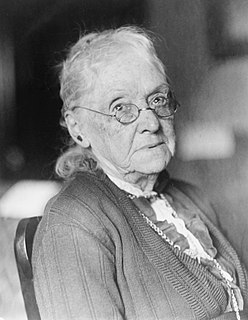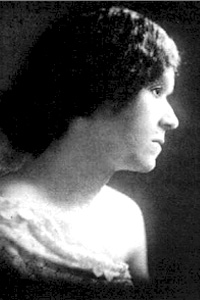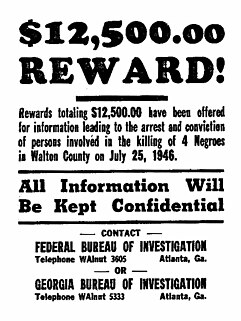Related Research Articles

Hester Lynch Thrale Piozzi, a Welsh-born diarist, author and patron of the arts, is an important source of information on Samuel Johnson and 18th-century English life. She was a member of the prominent Salusbury family, Anglo-Welsh landowners, and married first a wealthy brewer, Henry Thrale, then a music teacher, Gabriel Mario Piozzi. Her Anecdotes of the Late Samuel Johnson (1786) and her diary Thraliana, published posthumously in 1942, are the main works for which she is remembered. She also wrote a popular history book and a dictionary. She has been seen as a protofeminist.

Sam Hose was an African American who was tortured and executed by a white lynch mob in Coweta County, Georgia.

Rebecca Ann Latimer Felton was an American writer, lecturer, feminist, suffragette, reformer, slave owner, and politician who became the first woman to serve in the United States Senate, although she served for only one day.

Emily Pauline Johnson, also known by her Mohawk stage name Tekahionwake, was a Canadian poet, author, and performer who was popular in the late 19th and early 20th centuries. Her father was a hereditary Mohawk chief of mixed ancestry and her mother was an English immigrant.

Gothika is a 2003 American supernatural horror film directed by Mathieu Kassovitz, written by Sebastian Gutierrez, and starring Halle Berry, Robert Downey Jr., Penélope Cruz, Charles S. Dutton, John Carroll Lynch, and Bernard Hill. The film follows a psychiatrist who finds herself incarcerated in the penitentiary in which she works, accused of brutally murdering her own husband.

A Woman of No Importance by Oscar Wilde is "a new and original play of modern life", in four acts, first given on 19 April 1893 at the Haymarket Theatre, London. Like Wilde's other society plays, it satirises English upper-class society. It has been revived from time to time since his death in 1900, but has been widely regarded as the least successful of his four drawing room plays.

Georgia Blanche Douglas Camp Johnson, better known as Georgia Douglas Johnson, was a poet. She was one of the earliest female African American playwrights, and an important figure of the Harlem Renaissance.

Ray is a science fiction manga by Akihito Yoshitomi that ran in Champion Red magazine from 2002 to 2006 and was compiled in seven volumes. An anime television series adaptation, Ray the Animation, ran from April 6, 2006 through June 29, 2006.

Anne Roiphe is an American writer and journalist. She is best known as a first-generation feminist, and author of the novel Up The Sandbox (1970), which was filmed as a starring vehicle for Barbra Streisand in 1972. In 1996, Salon called the book "a feminist classic."

On May 16, 1918, a plantation owner was murdered, prompting a manhunt which resulted in a series of lynchings in May 1918 in southern Georgia, United States. White people killed at least 13 black people during the next two weeks. Among those killed were Hayes and Mary Turner. Hayes was killed on May 18, and the next day, his pregnant wife Mary was strung up by her feet, doused with gasoline and oil then set on fire. Mary's unborn child was cut from her abdomen and stomped to death. Her body was then repeatedly shot. No one was ever convicted of her lynching.

The Moore's Ford Lynchings, also known as the 1946 Georgia lynching, refers to the July 25, 1946, murders of four young African Americans by a mob of White men. Tradition says that the murders were committed on Moore's Ford Bridge in Walton and Oconee counties between Monroe and Watkinsville, but the four victims, two married couples, were shot and killed on a nearby dirt road.

The Thraliana was a diary kept by Hester Thrale and is part of the genre known as table talk. Although the work began as Thrale's diary focused on her experience with her family, it slowly changed focus to emphasise various anecdotes and stories about the life of Samuel Johnson. The work was used as a basis for Thrale's Anecdotes of the Late Samuel Johnson, but the Thraliana remained unpublished until 1942. The anecdotes contained within the work were popular with Thrale's contemporaries but seen as vulgar. Among 20th-century readers, the work was popular, and many literary critics believe that the work is a valuable contribution to the genre and for providing information about Johnson's and her own life.
The Anecdotes of the Late Samuel Johnson or the Anecdotes of the Late Samuel Johnson, LL.D. During the Last Twenty Years of His Life by Hester Thrale, also known as Hester Lynch Piozzi, was first published 26 March 1786. It was based on the various notes and anecdotes of Samuel Johnson that Thrale kept in her Thraliana. Thrale wrote the work in Italy while she lived there for three years after marrying Gabriel Piozzi.

Hester Maria Elphinstone, Viscountess Keith, born Hester Maria Thrale, was a British literary correspondent and intellectual. She was the eldest child of Hester Thrale, diarist, author and confidante of Samuel Johnson, and Henry Thrale, a wealthy brewer and patron of the arts. She became the second wife of George Elphinstone, 1st Viscount Keith.

A Kind of Magic is a French animated television series created by Michel Coulon and Marc du Pontavice, the creators of Oggy and the Cockroaches based upon Arthur de Pins's original design. It was produced by French animation company Xilam Animation with the participation of France 3 and Disney Television France in Season 1, Gulli and Canal J for Season 2. The series was directed by Charles Vaucelle for Season 1 and William Renaud for Season 2, the character designer by David Gilson and the executive producer by Marc Du Pontavice.
Mary P. Burrill was an early 20th-century African-American female playwright of the Harlem Renaissance, who inspired Willis Richardson and other students to write plays. Burrill herself wrote plays about the Black Experience, their literary and cultural activities, and the Black Elite. She featured the kind of central figures as were prominent in the black society of Washington D.C., and others who contributed to black women’s education in early twentieth century.

Fifty Shades Freed is the third installment of the erotic romance Fifty Shades Trilogy by British author E. L. James. After accepting entrepreneur CEO Christian Grey's proposal in Fifty Shades Darker, Anastasia Steele must adjust not only to married life but to her new husband's wealthy lifestyle and controlling nature. The paperback edition was first published in April 2012.
And Yet They Paused is a dramatic, one-act play presented in four scenes, by Georgia Douglas Johnson. Johnson wrote the play in 1938, in reaction to lynching. Like the rest of Johnson's lynching dramas, the play was not published during her lifetime.
Songs of the Harlem River: Forgotten One Acts of the Harlem Renaissance is a collection of five one-act plays written between 1920 and 1930 by several African-American playwrights at the time including Marita Bonner, Ralf M. Coleman, Georgia Douglas Johnson, Willis Richardson, and Eulalie Spence. Also included are poems by Sterling A. Brown, Langston Hughes, and Jessie Fauset.
A Sunday Morning in the South is a 1925 play about lynching written by Georgia Douglas Johnson.
References
- ↑ Johnson, Georgia Douglas (1930). "Blue-Eyed Black Boy" (PDF). National Humanities Center. Retrieved 29 March 2016.
- ↑ Johnson, Georgia Douglas Camp. Blue-Eyed Black Boy. Alexandria, VA: Alexander Street Press, 1989. Web
- ↑ Stephens, Judith L. "Art, Activism, and Uncompromising Attitude in Georgia Douglas Johnson's Lynching Plays." African American Review 39.1/2 (2005): 87-102. Web.
- 1 2 Henderson, Dorothy Faye. "Georgia Douglas Johnson: A Study of Her Life and Literature." ProQuest Dissertations Publishing, 1995. Web.
- ↑ Hines, Darlene Clark, David Barry Gaspan and John McCluskey, Jr., Eds. Black Female Playwrights: An Anthology of Plays before 1950. Bloomington: Indian U, 1989
- ↑ Hull, Gloria. Color, Sex, and Poetry: Three Women Writers of the Harlem Renaissance. Bloomington: Indiana U, 1985.
- ↑ Stephens, Judith L. "Politics and Aesthetics, Race and Gender: Georgia Douglas Johnson's Lynching Dramas as Black Feminist Cultural Performance."Text and Performance Quarterly20.3 (2000): 251. Web.
- ↑ Johnson, Georgia Douglas. "The Passing of the Ex-Slave." The Georgia Review 66.3 (2012): 466-. Web.
- ↑ Perkins, Kathy A., 1954. Black Female Playwrights: An Anthology of Plays before 1950. Bloomington: Indiana University Press, 1989. Web.
- ↑ Donlon, Jocelyn Hazelwood. “Georgia Douglas Johnson,” Black Women in America: An Historical Encyclopedia. No. 1. Ed. Darlene Clark Hines. Brooklyn: Carolson, 1993.